#Peak tv
Text
Hey. Pssst. I hear you like that show from 20 years ago. Well good news! How would you like us to dig up and reanimate its corpse, parading it around Weekend At Bernie’s style for 10 more episodes?
Why are you crying?
#if I have to see one more fucking bullshit news article#reboots#every new one is a fresh horror#peak tv#is dead lol#welcome to zombie tv#this is like in alien resurrection#when you get to see all the attempts at bringing Ripley back in that horror chamber#nobody needs you to ruin Malcom in the middle too#and nobody wants more x-files reboot
92 notes
·
View notes
Text
Andor: What if we depicted a harrowing account of life under an oppressive fascist regime?
The Bad Batch:

#i love it so much#I wanted Tech to quit Clone Force 99 to become a full time racer#peak tv#the bad batch season 2#tbb tech#star wars memes
298 notes
·
View notes
Text
To make up for the lost back end, streamers floated performance-based incentives. Schur describes a scenario in which a platform might promise a showrunner a $100,000 bonus for season one, $250,000 for season two, $500,000 for season three, and $1.7 million for season four. "So you’re like, Holy shit. This is great!" he says. There was a catch. Many seemingly successful series began to vanish after just a couple of seasons. "What no one saw coming was they’d just kill the show before they ever had to pay that money out," Schur says. “They kind of tricked everybody. Now if you get to 20 episodes, it’s a miracle."
104 notes
·
View notes
Text
My Peak TV Journey *Better Call Saul*
This is an entry that took a while to write. I watched the first two seasons of Better Call Saul as they aired, not too long after I binged Breaking Bad, from which it spun off. I don’t remember why I didn’t watch the third season as it aired. I was busy with something. But I finally got around to the final four seasons around the one year anniversary of the final episodes. I never re-watched the first two seasons, nor BB. This probably did come at the expense of some appreciation for the series. I know there were some characters and sub plots that I forgot in my hiatus. But I never felt I had the time, and frankly, I didn’t like either series enough to rewatch.
Which isn’t to say that I don’t think it is good. I think it’s good, but it fills me with dread, and not all of it seems intentional. I think As someone who watched and presumably liked BB, the various references to things that would happen there should have excited me more than they did. I found myself resenting that I promised myself to finish it before starting some shows that I also want to see, (the list is endless).
I like the characters of Jimmy and Kim. I like them better than most of the characters from BB, which is why I think the feeling I of dread I got from BB character was unintentional. (I completely forgot about some of the characters from the earlier series between viewings. This includes the Salamanca twins who I think should have left more of an impression on me.)
As I went on I started thinking about how many things that make television television, as opposed to a series of movies. TV runs off the tension between something familiar that the viewer wants more of and the desire to know what is next, and sometimes it felt like BCS was actively going against these things. For example, I often find that I amorally attached to certain sets. BCS ran through various great office and apartment sets, only to make the familiar Saul’s office from BB seem extra unpleasant. Then there were subplots, especially with Gus, where knowing how it wraps up in BB, just made it feel slack. Knowing Gus and Hector die in a murder-suicide made the scenes where Gus was tormenting Hector after his stroke seem pointless.
There were other times when I wondered about how much I could hate most of the main characters. In particular, I found myself hating Mike more and more as the series as it went on. Or maybe I always hated him, and just got over the sense that I was supposed to like him, or at least see him as somewhat sensible. After all the things between Mike and Werner I think the former deserved to be murdered by Walter White and have to listen to Walter yammer on while he died. Mike’s essential to the plots of both shows, but I hate everything he stands for. He’s smug, cynical know it all. I can’t tell if I was supposed to dislike him, but the fact that I did makes it seem like I should have given up on this earlier.
My fixation on “what does it mean that I hate Mike this much?” is because I am under the impression that he is a well liked character amongst fans. I am also under the impression that Jimmy’s brother Chuck is generally a hated character. I can understand it. Depending on your point of view he either doomed Jimmy to become Saul, or at least refused anything helpful. But I liked Chuck and was less engaged by the show after he died. His dynamics with Jimmy, Kim and Howard were interesting to me in ways that none of cartel stuff was. I was also amused that Chuck apparently wanted to write a book about the Commerce Clause. The Commerce Clause has fascinating history with American Civil Rights Movements and seems pretty controversial with the current Supreme Court of the USA. But I doubt Chuck would write a book that is engaging for most readers, because he tend to be in his own, intellectual world and doesn’t engage with the masses. And that’s the kind of tragedy that fascinates me.
Jimmy’s potential to be something other that Saul is traced with the class action suit he starts after some discovers at The Sandpiper Senior Residence. I was kind of shocked by how long this plot lasted, especially as it seemed to be dropped for episodes at a time. I made a note for myself about how the beginning and the beginning-of-the-end of the Sandpiper storyline involves Jimmy in a toilet stall making unconventional use of toilet paper. The first is desperate but optimistic. The second is cynical and much more destructive. It ends tragically, which shouldn’t be a surprise as the set up reminded me of Anthony Trollope’s The Warden, and that was a rough read. But how it ended, with the two worlds of the show colliding and making the lead to BB inevitable was exciting and dreadful. It also involved lots of name dropping and heavy foreshadowing with the assumption that we remember it from however long ago we watched BB. It’s really well done. It’s connected aspects of today’s media, where every series in an intellectual property that can go on forever. And I really don’t like that.
I want to talk about about the show’s other corporate plot in the series, the Mesa Verde plot, the one that Kim is involved in. It’s her big get, and something of a boring prison. It started half way through the second season and ends near the end of the fifth, so it was easy to dismiss as not that important to the general direction, but it does have some interesting things about how most lawyering is tiring paperwork not what we want from a TV show. It shows that Kim gets risky in her games with Jimmy because of how unengaged she is with work that is otherwise going well. Because of the amount of time between the debut BB and now, I found myself wondering if the housing market bubble will affect the Mesa Verde plot? Which I guess made me more engaged than Kim?
The main idea in this is that after finishing the series, I don’t think I liked it enough to justify the amount of time I spent watching it. But I need say, I do think it’s well made. It was always great to look at, especially with some of their more metaphoric shots, like the ants on the abandoned ice cream cone signaling JImmy’s future as Saul. All the performances were well done. I can tell there was some hard work in this. It wasn’t for me. I need to be better at giving things up that aren’t for me.
#peak tv#my peak tv journey#what i'm watching#Better Call Saul#BCS#Breaking Bad#BB#saul goodman#jimmy mcgill#kim wexler#chuck mcgill#howard hamlin#mike erhmantraut
10 notes
·
View notes
Text
we like to talk about the kind heart beating at the center of mob psycho 100...
its eminently huggable and relatable main characters...
the surprising maturity and accessibility of its psychological themes, the tightrope it walks between pathos and absurd humor, the abundance of sensitive neurodivergent representation within, and—for a story with a predominantly male cast—its largely unsexualized and refreshingly real girls and women.
i could keep listing more aspects of this story that i adore, honestly. but for me, it was one specific aspect of the writing that struck me the hardest.
as a person who used to inhale film and TV criticism like folks in the US devour breakfast cereal, i live for subversions of tired, well-worn storytelling patterns (call them tropes if you must). MP100 is full to leaking with subverted expectations. but only rarely do i ever see a writer subvert a done-to-death pattern and then subvert the subversion.
studio bones and ONE's writing work together to pull this off in the fifth episode of MP100's first season. on my first watch, i had to pick my jaw up off the floor at what i was seeing.
this got... long... more below the cut.
first, a little bit of framework.
the concept of single combat drives much of the action (and comedy) in shōnen fighting series.
it simplifies the conflict between cultures, between ways of life, between ideals, to a question of who is stronger in a no-holds-barred match between two people. the answer decides the fates of whole nations, hopefully but not always spares both sides from further bloodshed, and it's older than dirt.
the cathartic appeal of such distillation is not entirely lost on me, but i also crave novelty and nuance? and seem to be aging out of the shōnen demographic as a result. 'my kung-fu is stronger than yours!' 'yeah? well, i'm fucking bored with attempts to settle this question with fists or magic and no longer care.'
i do not count MP100 as a fighting series; the story doesn't conflate personal growth with increasing skill at punching shit and would hold up as a coming-of-age story quite well without battles. while MP100 flirts shamelessly with many fighting series clichés, it actively refuses to commit to those it engages. it rejects this one entirely by story's end.
when teruki hanazawa first becomes aware that shigeo kageyama exists and shares his easy facility with ESP, he and the audience are led to believe that the two boys will enter into a showdown like those we've seen so many times before. they'll fight it out like the real men they'll be soon, and a clear victor will emerge from the wreckage in their wake.
shigeo, of course, is flatly uninterested and baffled at this stranger fighting him unprovoked. teru figures he can preserve his view of the world by simply bringing the boy to heel, just as he has with everyone else around him. even after the little blond chuunibyou twists him until his bones crack... waterboards him in the depths of black vinegar middle school's swimming pool...

[image ID: a teenaged boy in his physical education uniform of white tee shirt and red shorts is shown from the back and below him... at the very bottom of a swimming pool. he has been plunged in against his will; a barrier of sorts can be seen around his body -- his own defense against the middle schooler attacking him.]
demolishes much of the school grounds, wielding his spindly body as a wrecking-ball...
shigeo will not yield. nor does he indulge teru in his pointless lust for battle.
he doesn't see him as an enemy and, more importantly, doesn't want to hurt him. the child is painfully aware of how easily he could kill this boy, so he endures the abuse, though not without protest. i'd never seen a shōnen anime series that even presented refusing to fight as an option.

[image ID: a bowl-cut-sporting teenage boy in a white tee shirt with a red collar stands hunched over and facing his antagonist offscreen to the viewer's right, in anticipation of another attack. he is saying 'i told you to stop that.' in the background is a statue of a human figure with arms raised above its head in victory. it will soon be made to topple onto him.]
though shigeo refuses to play this game at all, the lack of damage teru is able to inflict on him with ESP and his concise verbal summation of the profound insecurity driving teru's behavior already prove shigeo's superiority. teru needs to feel supported and justified in this unwarranted attack on another boy just like him, and so he demands, over and over, that shigeo fight back... that he show his powers. but it never sinks in for him that he's seeing them in action.
in the end, teru gives up on forcing shigeo's submission with ESP and uses his raw physical strength to strangle the young kageyama... who then plays this trope straight and utterly traumatizes teru into adopting a different outlook on life. after he passes the fuck out.
with teru's one-sided, tragic attempt at a brawl between himself and another esper child, ONE sends up the entire concept of magical single combat so hard it hits low earth orbit.
to make abundantly clear just how ridiculous this shit actually is? shigeo strips teru naked, then drains him dry of psychic energy by way of his fucking groin (in the anime) for even forcing him into this. you know, just for the extra humiliation. the boy's already been shaven like a fallen samurai at this point.
and teru's need to resist the challenge shigeo's existence presents to his way of life? we are made to see just how much harm that resistance to reality actually causes.
shattered glass, crushed concrete, wrecked doors, busted faucets spewing everywhere and wasting water—the camera lingers on these in-story, real-world consequences. actual shōnen fighting series rarely address such collateral damage outside of personal vendettas or playing it for comedy. (the comic bits here are almost necessary to leaven the pathos we're seeing, and are inseparable from that sadness.)
teru nearly commits first-degree murder twice and causes major property damage i doubt he had the power to fix. don't you dare look away, MP100's creators say. we need you, gentle watcher, to bear witness. teru is wrong. THIS WHOLE APPROACH to conflict is wrong. look again. does this remind you of anything?
and shigeo doesn't get off the hook either, though i'm inclined to give him a pass because reasons. he summarily flattens the rest of teru's school, finishing the job, and launches it (and him) above the clouds, but at least murder isn't on the table? the child suffers greatly for this unconscious act of retribution and continues to punish himself for this madness for some time... even after cleaning up the mess they both made when he returns to his senses.
no one wins here. what is 'winning'? what is 'losing'? are we even asking the right questions?
this arc—but especially this 'fight'—is darkly, absurdly funny, thought-provoking, and one of the most heartbreaking and moving things i'd seen in a long time. it sold me on this story and keeps me coming back in astonishment and gratitude.
(this is an expansion of part of a recap i wrote for this episode. you can read it here.)
#mob psycho 100#mp100#philosophy#mp100 meta#mp100 s1 rewatch#mp100 s1e5#peak tv#my kung fu is stronger than yours#single combat#damn good writin'#double trope subversions#what did i just watch#誠にありがとございました#links to my writing elsewhere#kageyama shigeo#hanazawa teruki#分析
54 notes
·
View notes
Text
Doctor Who, Totally Killer, the Star Trek musical episode...I'm seeing more, nonsense, fun and silliness in media and I like it!
I hope it's a trend. TV and movies have been taking themes too seriously for too long.
#doctor who#star trek#totally killer#peak tv#the trough of streaming#the last decade of entertainment seems to have forgotten how to be entertaining#something shit can just be silly and a little nonsensical
12 notes
·
View notes
Text
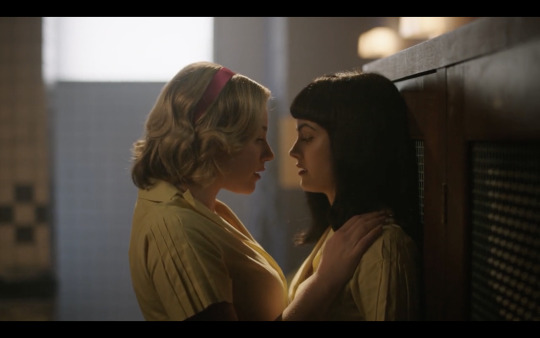
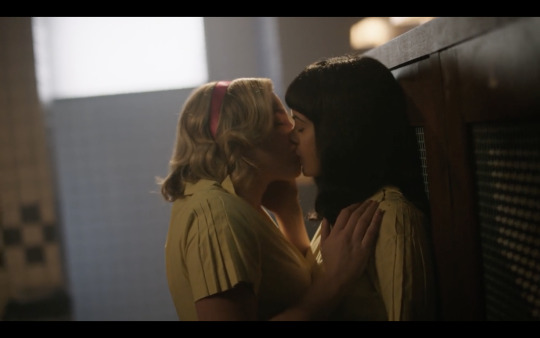
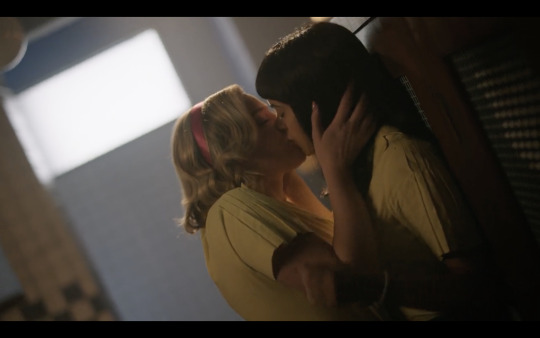
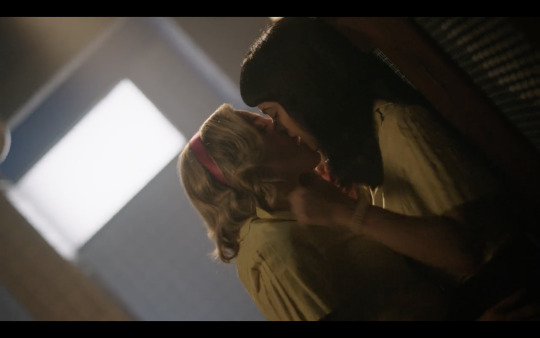
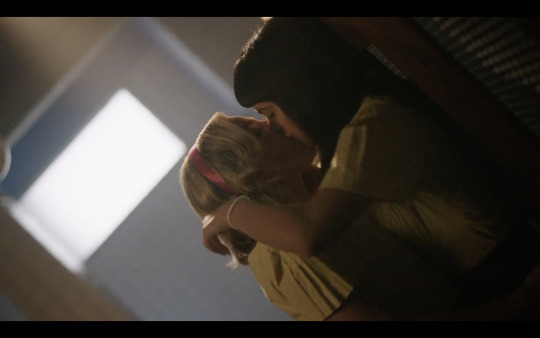
you ask and you may receive 🙏 🏳️🌈
24 notes
·
View notes
Text
Happy 2 year Anniversary to All American’s best episode. Happy 2 year Anniversary to Spencer James confessing his love to Olivia Baker. Happy 2 year Anniversary to one of the single best moments on tv in my life. What a time. The anticipation. The tension. The cinematography. The fluff. The angst. THE BUZZ. Roll the Dice, you are loved. Mike and David, you are respected. Daniel and Samantha, you are legends. What a MOMENT!!!!
#all american#spencer james#olivia baker#spelivia#daniel ezra#samantha logan#peak tv#this show will never have this ever again
33 notes
·
View notes
Text

We stand with WGA and SAG-AFTRA!
The highly profitable studios with their grossly overpaid CEOs are the epitome of avarice and hypocrisy.
All they can do is make essentially the same movies and TV shows over and over and over again. Their production of cliched formulaic blockbusters is falling flat with audiences. Instead of spending $250 million making one film they could use that to make ten $25 million films. And the irony is that they would probably make more money and wouldn't have to treat actors and writers like livestock.
Parasite (2019) was out of the ordinary in many ways. It was not another predictable and flashy superhero sequel. It cost just $15.5 million to make but has brought in $262.7 million – so far. That lesson is lost on Hollywood which is in a deepening creative rut and wants to make things even worse by stifling imagination with AI.
Daring to be different and relying on quality can be quite profitable. Star Wars and Game of Thrones were not typical sci-fi and fantasy works but they paid off amazingly well.
Perhaps it's time for writers and actors to start their own studio and give the bloated big guys some badly needed competition.
–-–-–-–-–-–-–-–-–-–-–-–-–-–-–-–-
For those who still don't get what these strikes are all about, the bottom line is fair pay for honest work.
The 1 cent paycheque: here’s the awful truth about being an actor in the 'golden' age of streaming
#wga strike#sag-aftra strike#sag-aftra#wga#fair pay#actors#writers#greedy studios#overpaid ceos#the golden age of streaming#peak tv#hollywood#failing blockbusters#stick with the unions and stick it to the studios#frank hansen
11 notes
·
View notes
Photo

16 notes
·
View notes
Text
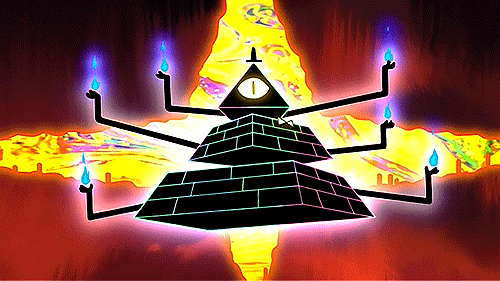
Recently watched THE WEIRDMAGEDDON again and I swear I forgot that it was PEAK TELEVISION
nothing will ever top that
Ever.
14 notes
·
View notes
Text
2015: Have we reached Peak TV?
2023: Have we reached Peak Pedro Pascal, a Gruff Badass With a Heart of Gold Helping a Special Child Journey Towards Their Destiny, TV?
5 notes
·
View notes
Text
this undercover tony and roxie marriage retreat episode is top tier i’m in stitches
#the accents… the latin chanting… the assault course😭😭#peak tv#now I wanna rewatch the vegas ep#ellie watches bones#ellie.txt
2 notes
·
View notes
Text
i know it's been weeks but i still feel so not normal about the louis and lestat church kiss
5 notes
·
View notes
Text
My Peak TV Journey *What We Do in the Shadows*
I took notes while watching season five of What We Do in the Shadows hoping I’d be able to post something in a timely manner. By most people’s standards I haven’t, but by my own, maybe? I liked this season better than the fourth. I can’t honestly say if it’s because it was better, or I was just in a better place. In someways the seasons were interesting reflections in each other. Partially because of this, I think the series should wrap up next season.
One of my complaints about last season is that I got bored with the child version of Colin Robinson before the plot wrapped up. I missed adult Colin’s effect in the group and just wasn’t in the mood for a season long “the more things change, the more they stay the same” plot. While Colin was restored to his adult self with all the group dynamics that come with it (and no memory of the past year) there was the possibility of another “more things change, the more they stay the same” plot with Guillermo’s uneasy transition to being a vampire. But this time the act of restoring the status quo by making Guillermo a human again, has the potential to really change everything. Who is Guillermo if he no longer wants to be a vampire? How does he fit in with the group? Or does he reject it entirely.
Appropriately while Guillermo’s attempt to transition from human to vampire is stagnant, things between him and Nandor become more overtly romantic than in previous seasons. But this is with the added tension because Guillermo going to another vampire to be turned was the biggest betrayal he could do to Nandor. The climax where Nandor finds out after pretty much everyone else, and understands exactly why this transition hasn’t gone well the how to complete it has a sensitivity that is unexpected. And the fact that he can tell Guillermo ultimately doesn’t want to directly take human life, is tender.
The season saw more of Guillermo’s family than previous seasons, which made the reversion to his human state make more sense emotionally. In his semi human/semi vampire state he sought help from Laszlo who proceeded to perform freaky experiments on him. They did not shed light on his condition, but they included some very freaky animal hybrids, (who I hope we see more of next season) and an opportunity for Laszlo to use Guillermo’s sweat as a vampire sun screen. Unrelated to Laszlo’s experiments, there was a scene where a shocked Guillermo trips booby traps that Colin Robinson set up through the house while Wagner’s “Ride of the Valkyries” plays in the background. It was ridiculous. It made me happy.
Speaking of Laszlo, is it just me or was his screen time reduced this season? If so why? Was it to give Matt Berry a break for personal reasons? Was it a concerted decision to prevent the series form becoming The Laszlo Cravensworth Show? At the very, least he does not currently appear to be driving plot. In the previous two seasons he was aiding Colin Robinson in his respective end of life and beginning of life phases. Here he was helping Guillermo with his stalled transition. It could be a sign of Lazslo’s character being the friendliest of the bunch, but I doubt it. None of these characters are exactly humane.
Following up Laszlo’s lack of driving plot, it’s worth noting how little he had to do with his lady wife Nadja this season. The plot in which they interacted the most involved him struggling to make a good impression on her new human friends from Little Antipaxos, where she enjoyed getting to know contemporary people from her homeland. He eventually, inadvertently convinces them that he is the the incarnation of a legendary, piggish figure. But their general lack of conflict and interaction also made a kind of sense for Nadja’s plot. In previous seasons she regularly railed against a cursed hat Laszlo had and refused to get rid of. Last season wrapped up the cursed hat story, and so this season had Nadja thinking she was hexed in her pre-vampire life. While curses definitely exist in the WWDITS world, the show starts the storyline explicitly saying that the events that led her to think she was cursed were really the result of how much inebriated blood she drank while running a club last season. The attempts to reverse the curse led her to Little Antipaxos, teaching about citizenship in a community college, and getting scammed by a “magic woman” who really wanted her preferred Dunkin’ Donuts to serve her again. I enjoyed all of this.
I am glad that Colin Robinson is an adult again. I loved his short reunion with his energy vampire girlfriend Evie while running for political office. I also enjoyed seeing him as a waiter and how upset he got when the too interesting.
Finally, Kristen Schall’s Guide was bumped up to a regular character this season. I think she had a similar amount of screen time this season as last, but she did drive more plot. Notably, she gave Nadja the “clues” to “prove” that she was really cursed. This turned out to be a punishment for the ways in which Nadja ignored her as a potential female friend. As much as I like Nadja, I am one hundred percent Team The Guide in this conflict. The dynamics of the characters can be described as cliques within cliques. Nadja and Laszlo’s marriage is a clique. Laszlow’s, Nadja and Nandor are a clique as the classical vampires who have been living together. Guillermo is in a clique with the classical vampires against Colon as he can feed off of all of them and they hate him for that, etc. having the Guide, who’s always known they were detached from the world, but now recognizes them as her only option for long term companionship, is exactly the kind of situation for which this show exists.
#peak tv#my peak tv journey#what i'm watching#what we do in the shadows#WWDITS#nandor the relentless#guillermo de la cruz#nandor x guillermo#colin robinson#laszlo cravensworth#nadja of antipaxos#nadja x laszlo#the guide
10 notes
·
View notes
Text
'Better Call Saul' Reminds Us What Must See TV is Like Again
‘Better Call Saul’ Reminds Us What Must See TV is Like Again
I cannot remember the last time I was this excited about a cable TV show. Game of Thrones perhaps? But even then you can catch HBO on demand. AMC at least for my cable subscription is a dangerous one and done. The kind that has strangled the cable industry, but I welcome the pace change. Not that it is too different from streaming now. Of the streaming shows I’ve been watching over the past…

View On WordPress
2 notes
·
View notes